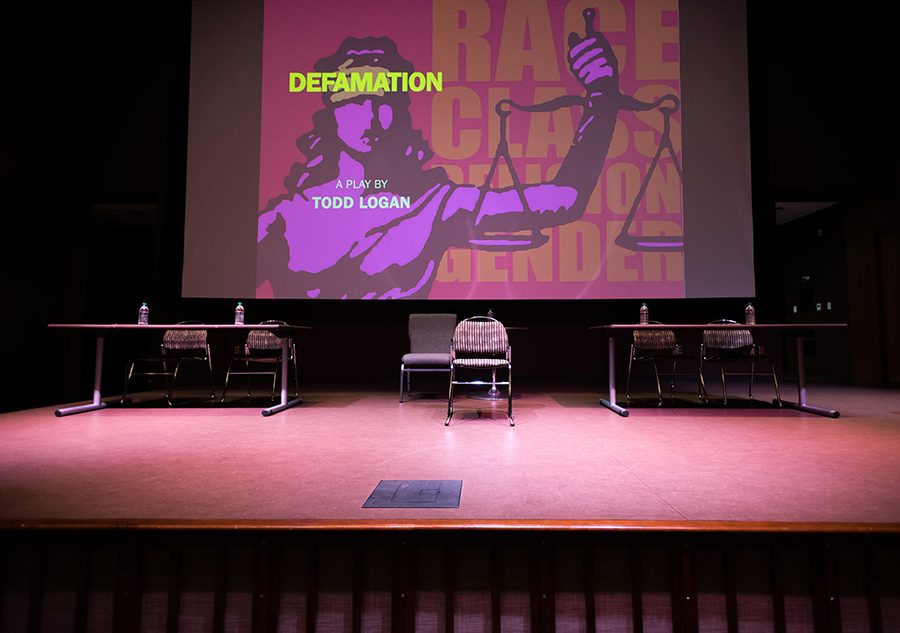One SDSU and Professional Studies and Fine Arts Civil Core hosted a play aimed at sparking discussion about race, gender, class and religion, and how they interact in the American justice system.
The play, called “Defamation,” was hosted at Templo Mayor on Feb. 14, and aimed to bring together students who may not typically interact to explore issues surrounding diversity, according to the organization’s web page.
“Defamation” is in its seventh year of touring, and has been seen by over 50,000 people, according to Managing Director and actress Kimm Beavers.
The play centered around a defamation suit, filed by an African American woman against a white Jewish man. The show was interactive, and the audience served as the “jury” and discussed and voted on who should win the case.
The topic of racism was prominent throughout the play. Regina Wade, played by Risha Tanae Hill, discussed her perception that she was treated differently by employers because of the color of her skin.
“I am especially proud because I am black,” Woods said. “Everyone is born into a situation. Being black is quite a situation.”
The actors were put against a projector screen displaying an image of Lady Justice holding scales, evoking the aphorism, “justice is blind.”
The jury decision ruled in favor of the the white male character, Mr. Golden, who was played by Brian Rabinowitz.
During the discussion following the show, audience members shared their reactions.
“One of the things that struck me most was one of the things they said which was, ‘race is an artificial construct,’” PSFA Civil Core president Brandon Lim said.
Beavers asked questions and directed the discussion from onstage.
“Is it possible to take our feelings out of making a decision?” she said. “Can we really take race out of the equation, with as much as it permeates our society?”
One audience member, counseling and social change junior Dominiko Villa, said that the jury’s decision may have been different if Golden’s lawyer had been a white woman. Beavers, who played Golden’s lawyer, is African American. Villa said the questions Beavers asked Woods might only be acceptable because both women are black.
Another audience member supported this argument.
“Because you’re a black woman, I can assume that you’ve had or likely had similar experiences,” biology sophomore Yaa Mensah-Bonsu said. “If you were white, I would have been so irritated.”
Anthropology junior Tiyana Dorsey agreed that race still affects the process of the justice system.
“We’re still a long way from race being not being a factor, if it could ever not be a factor,” Dorsey said.
Defamation playwright Todd Logan said audiences are generally appreciative of the discussions sparked by the play.
“The feedback that we get is that people do appreciate having the opportunity to have these conversations,” he said.
Correction: A previous article of this version stated the actor and actress who played Arthur Golden and Regina Wade in “Defamation” were Eugene Woods and Tom Hickey. Brian Rabinowitz and Risha Tanae Hill were the actors in the play this year.










